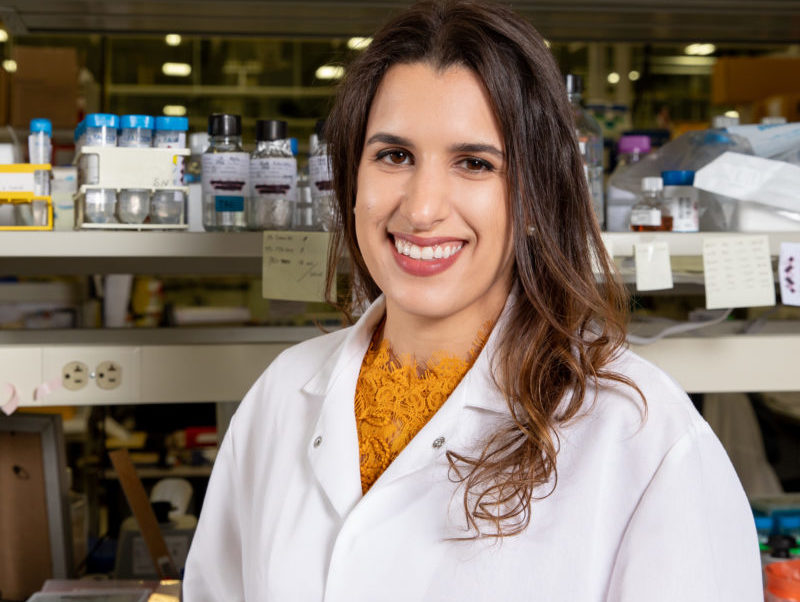Haydee Torres, a Miami native, has been a researcher in the Tao Lab since 2018 and is currently working towards her Ph.D. in biochemistry at South Dakota State University. She gives credit to her family for being where she is today, saying, “It is not about me. It is about them.
“I am not afraid of jumping to new places and going out of my comfort zone,” she said. “I think that is partially because my family did that. They are immigrants from Cuba who came to the U.S. for freedom and a happy life. I was fortunate to inherit the ability to take opportunities, seize them, and achieve your dreams.”
‘Driven by curiosity’
After receiving a bachelor of arts degree in psychology from Villanova University in Pennsylvania, she discovered her passion for unraveling mysteries in basic science. She proceeded to graduate with a bachelor of science degree in biology from St. Thomas University in Florida.
Looking for more stories like this? Subscribe to our newsletter
“I have always been driven by curiosity, and psychology was the opening to that,” Torres said. “It was really in my biology degree that I realized I wanted to do research.”
Through a fellowship and assistantship at South Dakota State University, she was able to take elective courses toward her Ph.D. through Sanford Health. Here, she was introduced to Dr. Lance Lee.
“I got to know Dr. Lance Lee through these courses since he organized them. He served as an important bridge for me, opening up the possibility of joining a lab at Sanford,” she said.
Day-to-day at Sanford
Torres works under Dr. Jianning Tao, who was a first-generation college student like herself. “We bonded on that and the experiences and challenges that come with it,” she said.
For a year now, Torres has been investigating novel Notch interacting proteins and modeling pediatric osteosarcoma, a type of bone cancer, in mouse models.
She also works with BioID, a technique that is used to study protein function. BioID is not a part of her lab, but thanks to the collaborative environment at Sanford Research, she said, “I can now leave here with that under my tool belt.”
The collaborative, tight-knit environment was what drew Torres to Sanford Research. In addition to learning about new technologies such as BioID, she also has access to data clubs and seminar speakers that come in almost every week to describe their research.
“It will be hard going anywhere else after this because not every place is like this,” she said. “Sanford is a microcosm of creativity. I am satisfied to have found an intellectually demanding and supportive environment.”
A bright future ahead
Torres is a daughter of Cuban immigrants. “Because of that, I have a deep responsibility, gratitude, and privilege to choose my own path. I think that is why I was never scared of going out there. When I see opportunities, I am not going to say no to them,” she said.
Torres plans on being a Sanford Research graduate student for two more years. During that time, she hopes to learn more about bioinformatics, which is all about sorting and understanding big data.
As for the future, she hopes to become an independent researcher specializing in genomic medicine. She wants to reach out to those with similar backgrounds. “I want to be a researcher, but I also want to give my time as an educator, especially to people that are from minority backgrounds or are first-generation students.”
When asked about her time as a researcher, Torres gave some solid advice.
“Being a researcher is more about perseverance. You don’t have to be the smartest. You just have to persevere. More importantly, you must stay humble and learn from your mistakes. That is science. Just like life, you make mistakes, learn from them, and keep going.”
More stories
- Freel finds her career niche with help from Sanford Research
- Sanford Research inspires grad student Hannah Wollenzien
- Anderson able to pursue two careers with Sanford Research
- Sanford cancer researcher earns $1.9M grant
…
Posted In Inclusion at Sanford, Postgraduate Programs, Research, Sanford Stories
